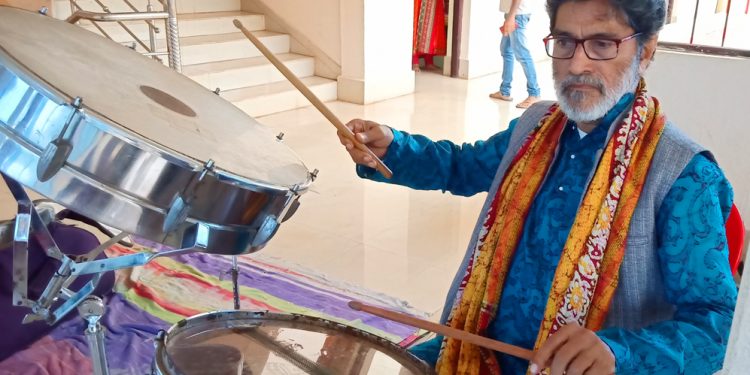Acclaimed theatre actor and director Probir Guha needs no introduction. Considered a living legend in West Bengal, the Central Sangeet Akademi Award winner has developed new aesthetics and introduced new tools of expression by moving away from the linear narration, speech and movement of conventional drama. In a clear departure from the usual practice, Guha embraced non-proscenium theatre, as he believes doing proscenium is too intellectual and urbane. In his 53-year-long career, he has worked with the who’s who of theatre. Guha started his career in theatre with Bibhas Chakraborty and Badal Sarkar in West Bengal and has worked with the prominent personalities like Jerzy Grotowski (Poland), Eugenio Barba (Italy), Peter Brook (France) and Roger Simon (US). He also collaborated with prominent Odia theatre personalities like Asim Basu, Ananta Mohapatra, Dhiren Das, Subodh Patnaik and Odissi danseuse Sanjuka Panigrahi. Guha, who was in Koraput recently with his troupe, spoke to Bijay Mandal on theatre, Odisha connection and more.
On his unique brand of theatre
I always wanted to express my inner feelings and thought theatre was the perfect medium to do so. I joined Bibhas Chakraborty to learn theatre. However, after spending a few years with him, I realised that I didn’t want to do this kind of theatre. I didn’t want an urban audience for my shows. My audience live in rural pockets, they belong to the ‘have-nots’ group. There came a time when I was contemplating returning to my previous profession — politics. Luckily, I got an opportunity to work with the legendary Badal da (Sarkar), who was known for taking theatre from proscenium to the public arena. It encouraged me to reinvent myself. But after a while I lost interest as Badal da too used to speak on urban issues. I was born and brought up in a village and understand the rural sentiments better. I can’t understand city life and its culture. Folk culture was my forte and I have always believed that we can go a long distance if we work on it. So, I decided to involve people who have never been into theatre. I wanted to work with those who were rejected by the society – outlaws and outcastes. My objective was to reform them so that they can lead a normal life. It was not easy but I took the risk. I taught them different kinds of dance forms to express themselves. Surprisingly, they invented a different language with their bodies. I could evoke elemental emotions through a form of theatre that is both physical and psychological and it was well accepted.
On working with Grotowski, Barba
Theatre directors from other countries also keep track of the state of theatre in India and the people involved with the art form. So, they want to collaborate and learn the art and culture of this land. I have worked with several prominent theatre directors of the world like Jerzy Grotowski(Poland), Eugenio Barba(Italy), Peter Brook(France) J.B Hatch, Anna Hallprin, Roger Simon, Richard Schchner, and Peter Schuman (all US), Toshi Tsitchuteri (France) and John Martin (UK). Working with them has helped me evolve, both as an actor and director.
On his legacy
My style of theatre has evolved over the years and I feel it can now be copied. Over the years I have earned the reputation of having a work style that is different from others. At the same time, I also feel that I become repetitive on occasions. So, I ask others to direct. My son has also directed me. Many senior actors too have directed me. However, this doesn’t mean only my associates can direct me. Anyone who shares my philosophy can chip in and work.
On returning to his roots
I may have introduced a style of my own but I also realised that there is a need to return to my roots. We easily forgot our past and tradition. Viewers don’t go to theatres because they fail to identify themselves with the theme.
On difference between Indian and foreign theatre
We are no match to them when it comes to professionalism and commitment. Theatre actors and directors in those countries proudly claim that they pursue theatre as a profession which is not the case in our country. It is not that there is big money in theatre there. Youngsters in many European countries utilise their unemployment allowance in designing plays.
On his Odisha connection
I have travelled the length and breadth of the state, especially rural Odisha. I had the privilege to work with Jnanapith Award winner Sitakanta Mohapatra, music maestro Raghunath Panigrahi and Samjukta Panigrahi. I have also worked with prominent theatre personalities like Asim Basu, dramatists Ananta Mohapatra and Dhiren Das. I share great rapport with them and have been part of many workshops. I also collaborated a lot with Subodh Patnaik of Natya Chetana who is a very promising talent.
BIJAY MANDAL, OP






































